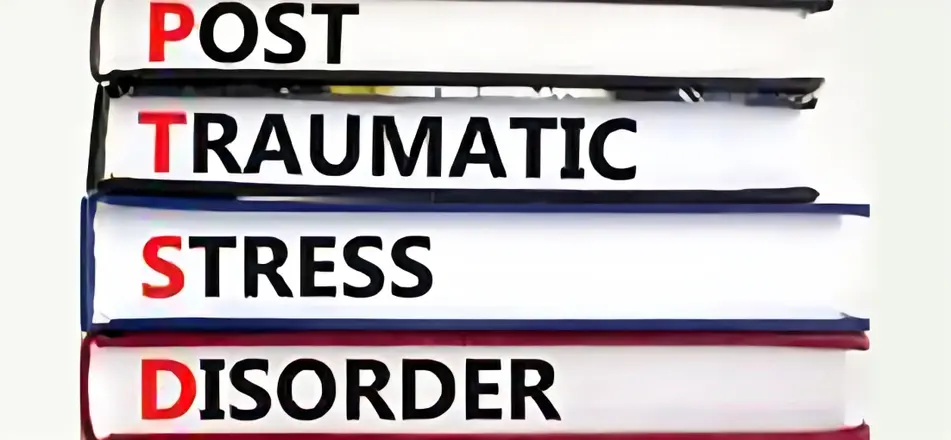Navigating PTSD and Mental-Health Treatments with Connecticut Workers’ Compensation

Mental health is an essential aspect of overall well-being, yet it often remains overshadowed by physical health concerns, especially in the workplace. For injured workers in Connecticut, understanding Post-Traumatic Stress Disorder (PTSD) and the mental-health treatments covered by the state’s workers’ compensation law has become increasingly crucial. This blog post aims to shed light on this topic, providing insights into the recent legislative changes and practical tips for those affected.
What is PTSD and Why It Matters
PTSD, or Post-Traumatic Stress Disorder, is a mental health condition triggered by experiencing or witnessing a traumatic event. Symptoms can range from flashbacks and severe anxiety to uncontrollable thoughts about the event. For workers, particularly those in high-stress environments, understanding PTSD is vital for recognizing symptoms and seeking appropriate treatment.
The Evolution of Workers’ Compensation for Mental Health
Historically, Connecticut’s workers’ compensation laws primarily focused on physical injuries. Mental stress claims were typically excluded unless they arose directly from a physical injury or occupational disease. This limitation posed significant challenges for workers suffering from mental health conditions resulting from traumatic workplace events.
A Landmark Change in Legislation
On January 1, a groundbreaking law, SB913, came into effect. This legislation marks a significant shift in how mental health is treated under Connecticut’s workers’ compensation law. Previously, only first responders were eligible for PTSD benefits without a physical injury. Now, the scope has expanded to include all employees, provided the PTSD is work-related.
Expanding Eligibility for PTSD Benefits
Under the new law, all employees subject to the workers’ compensation law in Connecticut are eligible for benefits if diagnosed with PTSD by a mental health professional. The diagnosis must be a direct result of a traumatic event experienced during the course of employment. This expansion of coverage acknowledges the profound impact that non-physical workplace traumas can have on mental health.
Qualifying Events for PTSD Claims
To qualify for PTSD benefits under the new law, the traumatic event must fall within specific criteria. These criteria ensure that the event is objectively traumatic and significant enough to warrant compensation. The following scenarios are covered:
- Viewing a deceased minor
- Witnessing someone’s death or an incident involving someone’s death
- Witnessing an injury that results in death before or upon hospital admission
- Witnessing a traumatic physical injury causing the loss of a vital body part or function leading to permanent disfigurement
- Carrying or treating an injured person who dies before or upon hospital admission
Ensuring the Event is a Substantial Factor
For a PTSD claim to be valid, the qualifying event must be a substantial factor in causing the injury. This means the traumatic event must significantly contribute to the development of PTSD. Additionally, the injury must not result from disciplinary actions, work evaluations, job transfers, layoffs, demotions, promotions, terminations, retirements, or similar actions.
The Benefits Under the New Law
The benefits for PTSD under the new law remain subject to the same procedures and limitations that apply to first responders. These benefits are capped at 52 weeks and must be awarded within four years of the qualifying event. This timeline ensures timely support for affected workers while preventing indefinite claims.
Contesting a PTSD Claim
Employers retain the right to contest a PTSD claim, similar to other workers’ compensation claims. This process involves reviewing the circumstances of the claim and the diagnosis to ensure accuracy and validity. Workers should be prepared for this possibility and gather all necessary documentation to support their case.
Physical Injury Requirements
Despite these changes, it’s essential to note that in most cases, claiming PTSD still requires an associated physical injury. This requirement stems from the historical context of workers’ compensation laws designed to address physical harm primarily. However, the new law provides a crucial exception for specific traumatic events, broadening the scope of coverage.
Opposition to the New Law
The insurance industry and other stakeholders have expressed concerns about the new law. They argue that expanding benefits beyond first responders could erode the requirement for a physical injury, potentially increasing workers’ compensation costs. Nonetheless, the law prioritizes the mental well-being of all employees, recognizing the importance of addressing PTSD comprehensively.
Why This Matters for Injured Workers
For injured workers, understanding these legislative changes is vital. Knowing that PTSD claims are now more accessible means recognizing the importance of mental health in the workplace. Workers experiencing symptoms of PTSD should seek professional help and explore their eligibility for benefits under the new law.
Practical Steps for Affected Workers
If you believe you qualify for PTSD benefits under the new law, consider the following steps:
- Seek Professional Diagnosis: Consult a mental health professional to diagnose PTSD and document the traumatic event’s connection to your employment.
- Gather Evidence: Collect any evidence related to the event, such as witness statements, medical records, and employment records.
- File a Claim: Submit a workers’ compensation claim detailing your diagnosis and the traumatic event. Ensure all required documentation is included.
- Consult Legal Assistance: If your claim is contested, consider seeking legal assistance to navigate the process and protect your rights.
The Broader Impact on Mental Health Awareness
The expansion of PTSD benefits under Connecticut’s workers’ compensation law reflects a growing recognition of mental health’s importance in the workplace. By acknowledging the impact of non-physical traumas, this legislation sets a precedent for other states and industries to follow.
Resources for Further Support
For more information and support, consider exploring the following resources:
- Connecticut Workers’ Compensation Commission: Provides detailed information on workers’ compensation laws and claims processes.
- Mental Health America: Offers resources and support for individuals experiencing mental health conditions.
- National Institute of Mental Health: Provides educational materials on PTSD and other mental health conditions.
In Summary
Understanding PTSD and the recent changes in Connecticut’s workers’ compensation law is crucial for injured workers. By expanding eligibility for PTSD benefits, the law acknowledges the profound impact of workplace traumas on mental health.
Contact A Stratford, CT Board Certified Workers’ Compensation Attorney Today.
If you or someone you know is experiencing symptoms of PTSD due to a work-related event, a board certified workers’ compensation specialist from the Morizio Law Firm can help answer any questions you may have about your situation. Call us today at 203-386-1433 for a free consultation.

